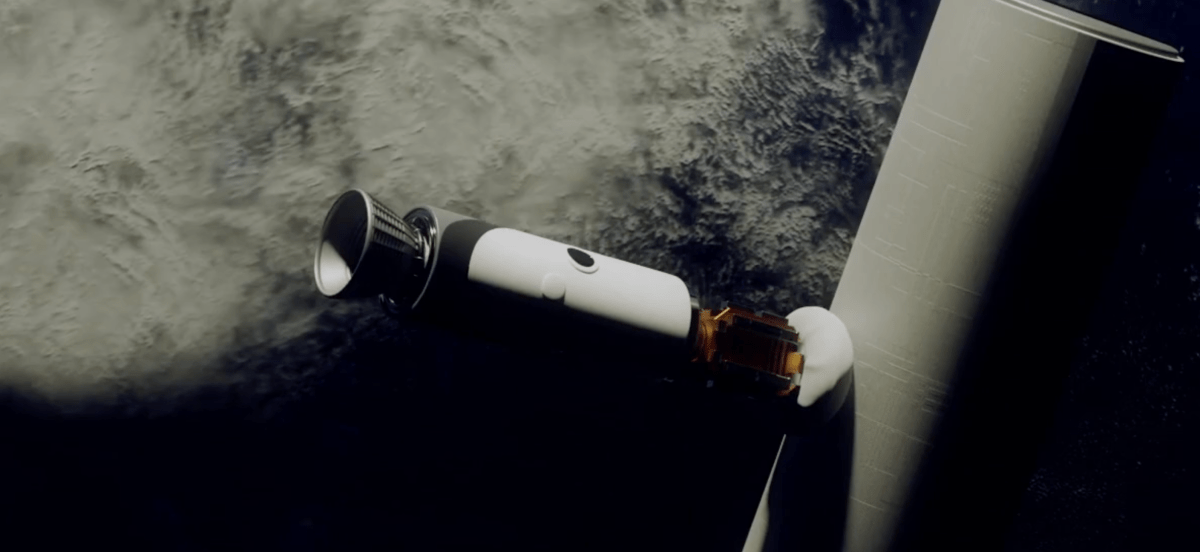Paris-based Dark Space is tackling two major issues plaguing space: debris and conflict. Their innovative mobile platform is designed to launch, attach to, and ultimately remove uncooperative objects from orbit.
In an interview, Dark CEO Clyde Laheyne explained that the company’s goal is to become the “S.W.A.T. team of space.”
The company, which was founded three years ago, is currently working on their flagship spacecraft called Interceptor. This unique vessel is essentially a rocket-powered boxing glove that can be quickly launched to gently push an object out of its orbit.
To launch Interceptor, Dark has developed a specially outfitted aircraft. Similar to a Virgin Galactic launch, the aircraft will take the rocket above the chaotic lower atmosphere, where it will then be released and ignited. Once the rocket reaches its designated target, the spacecraft detaches and uses sophisticated sensors and propulsion to locate and approach the object. Using its cushioned “effector,” Interceptor gently pushes against the object until it is successfully deorbited.
According to Laheyne, conventional space missions are typically well-planned and executed over a long period of time. However, orbital defense requires a different approach – one that is ready for unplanned, short missions. As Laheyne puts it, Interceptor is more like an air defense missile, always on standby for immediate use. “There is no excuse to not use it,” he insists.
Unlike traditional missiles or anti-satellite weapons, Interceptor‘s gentle strike does not produce debris or any other dangerous effects. This is due in part to the company’s founders, Laheyne and CTO Guillaume Orvain, who gained valuable experience working at multi-national missile developer MBDA.
Dark recently closed a $5 million funding round in 2021, with the majority of investors coming from Europe. However, the company also received $6 million from their first U.S.-based investor, Long Journey Ventures. (This fund is led by Arielle Zuckerberg, the younger sister of Meta founder Mark Zuckerberg.)
Dark still has a hefty amount of work ahead before they can successfully remove large objects, such as a defunct rocket second stage, from orbit. This includes developing critical systems, such as the cryogenic engine and software. The team is now shifting their focus to developing the necessary technologies for quick, unplanned missions that Interceptor will undertake. This includes long-distance detection and tracking systems, autonomous flight algorithms, and a reliable controlled reentry system.
In addition, Dark must also retrofit their aircraft, which Laheyne estimates will cost around $50 million – equivalent to building a new launch pad. The entire platform must be ready for a demonstration mission by 2026.
While this mission won’t actually attempt to remove an object from orbit, it will validate many of the core technologies of the full-scale platform. This is an incredibly ambitious goal, as no company has yet mastered rendezvous and proximity operations, which refers to moving close to an object in space and interacting with it.
The second demonstration mission, planned for 2027, will include an actual deorbit attempt. If all goes according to plan, Dark will begin removing objects for allied civil agencies. As for defense customers, Laheyne hopes that they will never have to use the technology. As someone who has been working on missiles for years, he knows that using it first could be seen as an act of war, whereas using it defensively could be seen as an act of defense. Ideally, Interceptor will act as a deterrent, making conflicts in space unthinkable.








